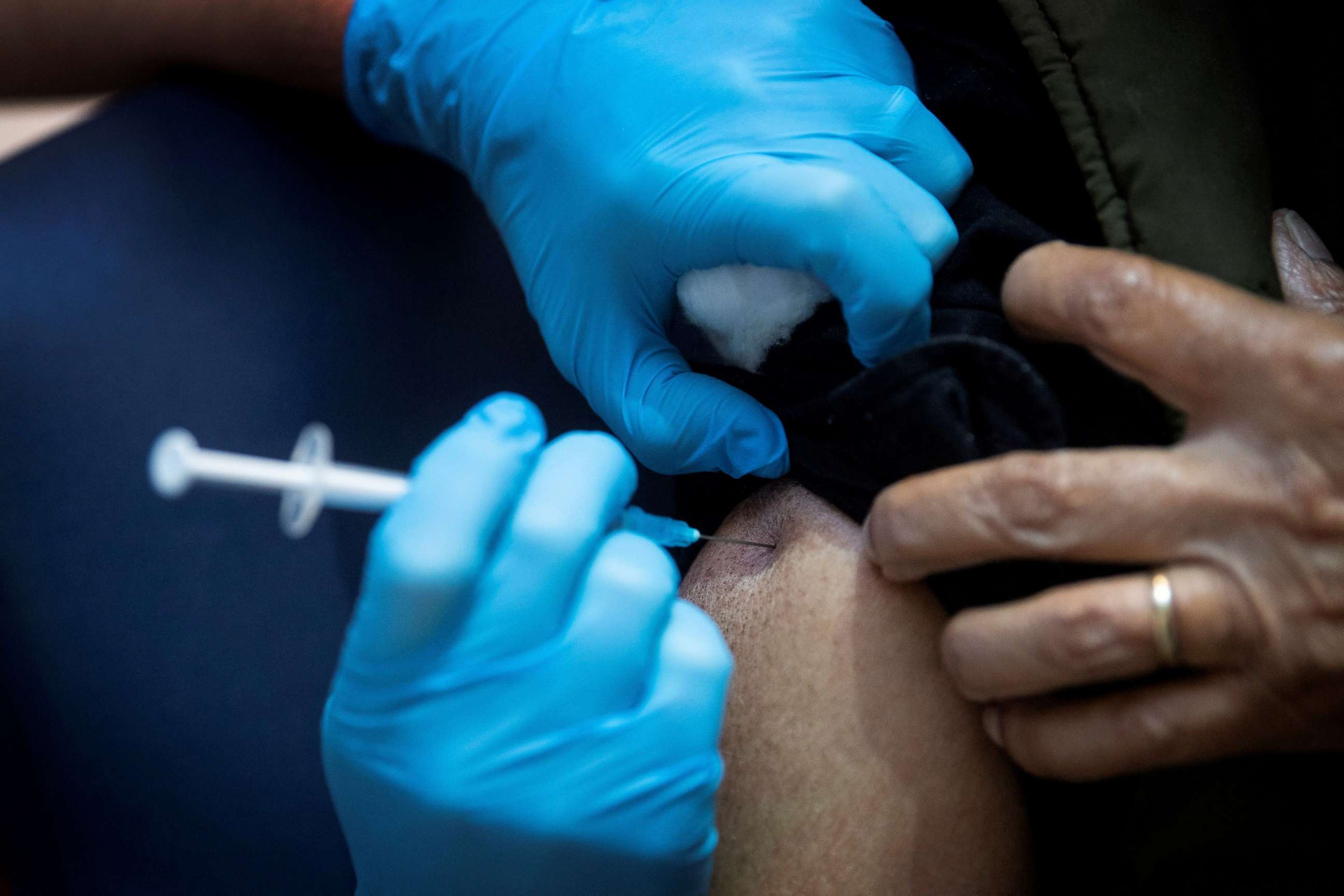Americans increasingly willing to get COVID-19 vaccine: Poll
Democrats are more willing than Republicans, 75% to 50%, to get the vaccine.
With the U.S. on the cusp of an authorized COVID-19 vaccine, public health experts warn that even a highly effective vaccine won't help if people aren't willing to take it.
"The challenge is going to be to convince people to get vaccinated," said Dr. Anthony Fauci, the nation's top infectious disease doctor, in a Facebook Live discussion with Facebook CEO Mark Zuckerberg on Nov. 30.
And while numerous polls throughout the fall showed many Americans were reluctant to take a hypothetical vaccine, now that there are two new, highly effective vaccines on the immediate horizon, new polls are suggesting that Americans are more and more willing to get vaccinated.
A new Gallup poll published Dec. 8 shows that Americans' willingness to get the COVID-19 vaccine has ticked up to 63%.
In a recent interview with The New York Times, Fauci stated that vaccine uptake would need to be "at least 75%. Hopefully close to 80-85%" in order to achieve "herd immunity" and stop the virus in its tracks.
"If you have a highly efficacious vaccine and only 50% of the country gets vaccinated, you're not going to have that umbrella of protection of herd immunity," said Fauci at the Wall Street Journal's CEO Council summit on Dec. 8.

While the height of American willingness to receive the COVID-19 vaccine was 66% in July, it continued to drop to a low of 50% in September following an announcement by AstraZeneca that its vaccine trials had been halted due to adverse reactions in its participants.
Experts at Yale University suggested that timing of vaccine statements around the 2020 presidential elections by different political figures may have contributed to vaccine skepticism as well.
But since September, vaccines from Pfizer and Moderna have demonstrated greater than 90% efficacy in stage 3 clinical trials. These companies have filed for emergency use authorization in the United States.
In the United Kingdom, the Pfizer vaccine has already been approved and given to thousands of people.
Based on the Gallup poll's random sampling of 2,968 adults, differences in vaccine willingness were able to be seen according to factors like age, political affiliation and education level.
Democrats are more willing than Republicans, 75% to 50%, to get the COVID-19 vaccine. Women are expressing less willingness than men to get the vaccine (60% vs. 66%). College graduates are more willing to receive the vaccine than non-college graduates (68% vs. 61%). Of all categories, willingness is lowest in adults aged 45-64 years old (52%) and non-white adults (53%).
Ongoing monitoring of the U.K.'s vaccination program, clinical trials and political dialogue will determine whether this gap will be closed and whether herd immunity will ever be reached through widespread vaccination in America.
Nicholas Nissen, M.D., is a clinical fellow and resident physician at Harvard Medical School and a member of the ABC News Medical Unit.




